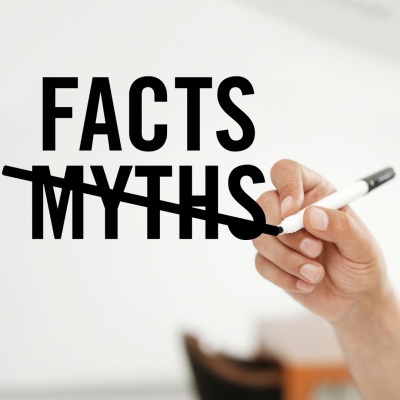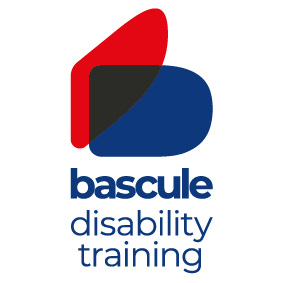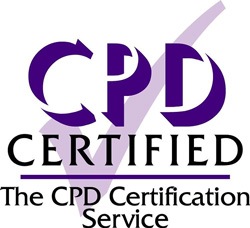Myths Debunked Around Employing People with Disabilities

Equality, diversity and inclusion is now at the forefront of many company agendas when recruiting staff, but a majority have made race, gender, religion or sexual orientation a priority over disability.
This was proven in a report from CIPD (2022) that found that just 36% of UK employers had a policy or strategy on disability inclusion, compared to 54% for gender and 46% for ethnic diversity. The report went on to ask why, identifying barriers around a lack of awareness, stigma, accessibility issues and lack of support.
All of those elements can of course result in misconceptions, myths and misunderstandings around disability- a few of which we would like to debunk:
Myth 1: “The costs of reasonable adjustment will be too high”
One of the most common misconceptions around disability and recruitment is that employment of a person comes with a big price tag where reasonable adjustments must be made. Unfortunately, employers envisage significant physical changes and purchasing expensive equipment when in most cases, it couldn’t be further from the truth. Reasonable adjustment usually entails simple, quick, easy, and inexpensive changes through things like offering flexible working conditions, providing assistive technologies, downloading certain software, or making information available in an accessible format. In fact, it was found that the average cost of reasonable adjustment is just £75.
Like anything, there may be certain situations that require more than this – but in those circumstances things like Access to Work come into play, which can assist organisations with a financial contribution, should they struggle to cover the costs themselves.
Myth 2- “People with disabilities aren’t as productive.”
You may think this sounds unreasonable and perhaps even outdated, but unfortunately, one in three people feel that those with disabilities are ‘less productive’[1].
Of course, a worker with a disability is not necessarily more or less productive than anyone else. Although a great deal of research has shown how people with autism can often have higher levels of pattern recognition, and ability in maths and memory orientated tasks. Another study by the Institute for Corporate Productivity found that employees with developmental disabilities contributed to ‘higher productivity, lower absenteeism and increased customer loyalty’ and it’s also been shown, that employees with disabilities provide creative perspectives, and offer new, wide-ranging viewpoints and different angles when it comes to approaching problem solving and new challenges.
There is, however, no clear evidence that shows that productivity is compromised by disability in the workplace.
Myth 3- “I won’t be able to fire or sack someone with a disability – even if they are poor performers or do something wrong”
One common misconception around hiring people with disabilities is that employers cannot let them go, or reprimand them, should they be unfit or unsuitable for a role.
This is of course, untrue. If you have made reasonable adjustments for someone, fully supported the person’s needs and their dismissal is nothing to do with their disability- their misconduct, behavioural issues or poor performance can be addressed in exactly the same way you would discipline every other member of staff, including firing or sacking them.
Myth 4: “A person’s disability may impact their ability to do their job”
One of the biggest concerns employers have around disability, is the overall competence of a person to do the tasks the job demands. In fact, as many as 33% of employers are concerned that someone with a disability would struggle to do the job they recruit them for.
Employers should remember that the candidate will be the best person to make a judgement on whether they are capable of doing the job. A person with a disability is also less likely to lie about their ability to do a job than a person without a disability. Just like anyone else, you will simply be able to measure from their credentials, knowledge, experience, qualifications, and their interview, how well they will be able to perform.
Whilst there may potentially be a few more hurdles, or challenges to get started in a role, with the right support and reasonable adjustments, people with disabilities typically adjust and adapt to work as well as any other new employee.
Myth 5: “Other employees may not work well with someone with a disability”
Employers can sometimes be apprehensive around the recruitment of a new staff member with a disability, with concerns about how they might fit into their existing workforce.
In a majority of cases, these concerns are unrealistic, especially if you practice good general awareness of disability, as staff will already be well versed on inclusivity, and be understanding, knowledgeable, empathetic, and supportive.
Of course, in some workplace cultures, this may not be a myth and can be a genuine cause for change. In fact, as many as 11% of businesses have some concerns that an employee with a disability may be mistreated by other employees.
That statistic alone displays an extreme need for disability awareness, and if a member of staff, manager or leader ever found themselves with those worries, then it would certainly be time to change the workplace culture.
In a case like this, staff from senior level down, should seek disability awareness training and consider the negative impact of discrimination, bullying and harassment, and reinforce the fact that it will not be tolerated in the workplace.
In time, changing your workplace culture and embracing difference will create opportunities for people with disabilities to join your company, as awareness will educate and give your team improved levels of empathy, and understanding around disability, eventually creating a more inclusive workforce.
JOIN US ON OUR NEXT ONLINE TRAINING SESSION- BY CLICKING HERE
[1] Disability facts and figures | Disability charity Scope UK



